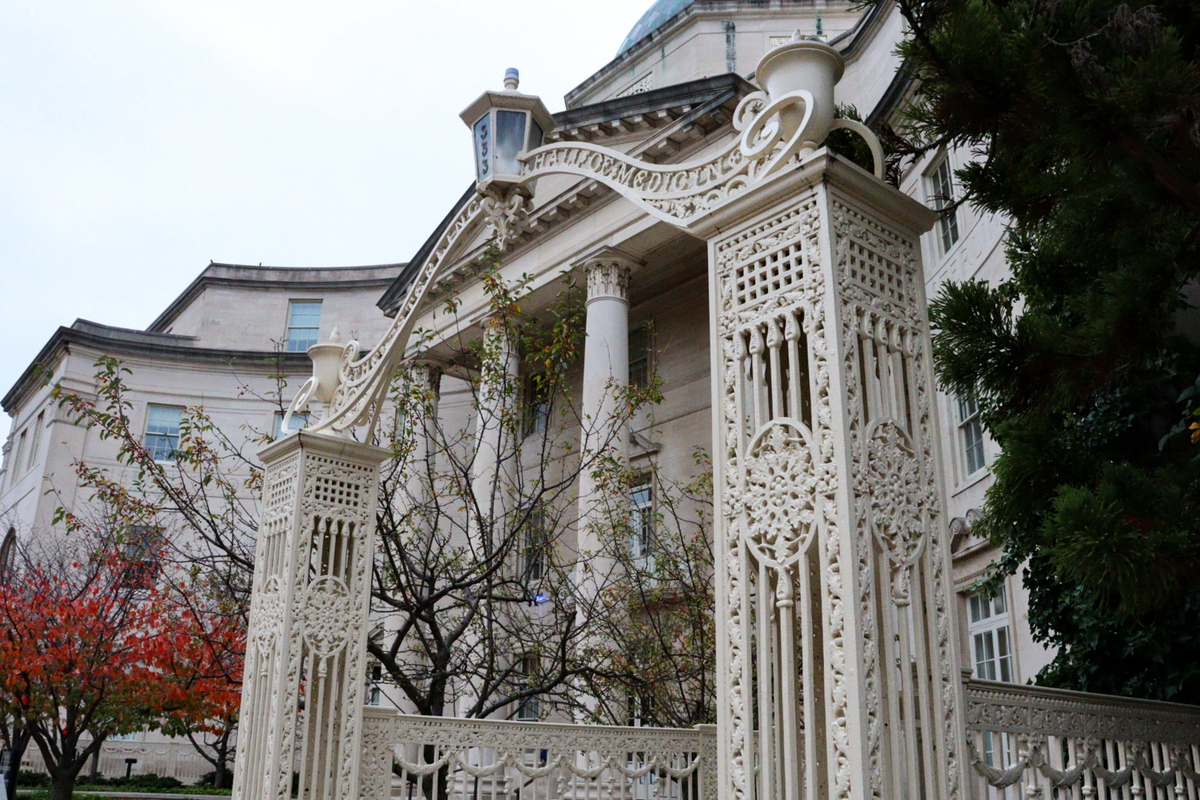School of Medicine administrator indicted in $3.5 million fraud scheme during previous employment at NYU
Cindy Tappe lost her position at Yale after pleading not guilty to all four charges of the indictment.

Hedy Tung, Staff Photographer
Yale School of Medicine administrator Cindy Tappe’s employment was terminated on Dec. 22 after allegedly embezzling $3.5 million from a New York state grant that she used to cover personal expenses, including an $80,000 swimming pool and almost $600,000 in renovations to her home in Westport, Connecticut.
Tappe was indicted by the Manhattan District Attorney’s office on Dec. 19. She was accused of stealing the money from the $23 million grant — designed specifically to uplift minority and female-owned businesses — while she was an administrator at New York University. After NYU leadership confronted her in 2018, Tappe left the school, according to NYU spokesperson John Beckman. She was hired by Yale in 2019, where she worked as School of Medicine Operations Director until she was fired.
The University originally placed Tappe on leave following her indictment before ultimately terminating her employment.
“Our multilingual learners and students with disabilities deserve top-notch services, and these funds should have gone directly to their schools,” Manhattan District Attorney Alvin Bragg wrote in a statement. “… This $3.5 million fraud also negatively impacted our city’s minority and women owned business enterprises by denying them the chance to fairly compete for and secure the funding.”
The courts charged Tappe with one count of first-degree money laundering, one count of second-degree grand larceny, two counts first-degree offering a false instrument for filing and two counts of first-degree falsifying business records. Tappe pleaded not guilty to all four counts of the indictment, and her attorney did not respond to requests for comment.
The indictment comes after a four-year New York State Comptroller investigation into Tappe’s alleged embezzlement while serving as the Director of Finance and Administration at NYU’s Metropolitan Center for Research on Equity and Transformation of Schools, also known as the Metro Center.
According to Beckman, New York State’s investigation began in 2018 after NYU implemented a new electronic payment system and detected “suspicious activity” from Tappe. NYU reported the theft to the state Department of Education and Comptroller following an internal audit.
“We are deeply disappointed that an employee abused the trust we placed in her in this way, and we are pleased to have been able to assist in stopping this misdirection of taxpayer money,” Beckman wrote to the News.
According to University Spokesperson Karen Peart, when Tappe was hired, “like all Yale employees, she underwent pre-employment screening, including reference and background checks.”
The grants from which Tappe allegedly embezzled were intended to go to New York State Department of Education programs that are administered by NYU. The programs — the Regional Bilingual Education Resource Network and the Technical Assistance Center on Disproportionality — were designed to increase access to education for minorities and people with disabilities.
As part of the grant, NYU disburses money to subcontractors, which receive and use the grant funding. NYU agreed to a State requirement that a certain percentage of subcontractors would be minority and women-owned business enterprises, or MWBEs.
The DA’s office alleges that Tappe arranged for three subcontractors, these subcontractors have not been charged, to receive the MWBE-designated grant funding. NYU paid these three companies roughly $3.5 million dollars, but none of them completed their contracts. Instead, The three companies took 3 to 6 percent overhead and passed the remaining $3.25 million onto “two fictitious shell companies” created by Tappe: High Galaxy Inc. and PCM Group Inc. The three companies also submitted fictitious invoices crafted by Tappe to justify the payments.
The DA’s office further alleges that Tappe used the two shell companies to steal at least $660,000 to pay for home renovations including a “new $80,000 swimming pool” at her home in Westport.
In 2018, an NYU program director confronted Tappe about the payments made to the subcontractors. According to the Comptroller’s office, Tappe then emailed the heads of both education programs, explaining the work completed by the MWBE subcontractors and “falsley” claimed that no other company could offer the same services.
According to Yale Law School Professor Emeritus Steven Duke, in situations like this, the State first attempts to recover the money without the use of prosecution. When the State is not able to recover the money without prosecution, an indictment is served to compel the return of funds.
“Once there is an indictment, unless the defense can show that the charges are erroneous or extremely weak, reimbursement of the lost money will rarely result in dismissal of the charges,” Duke wrote to the News. “The state will insist on a plea, perhaps to reduce charges.”
NYU was founded in 1831.







